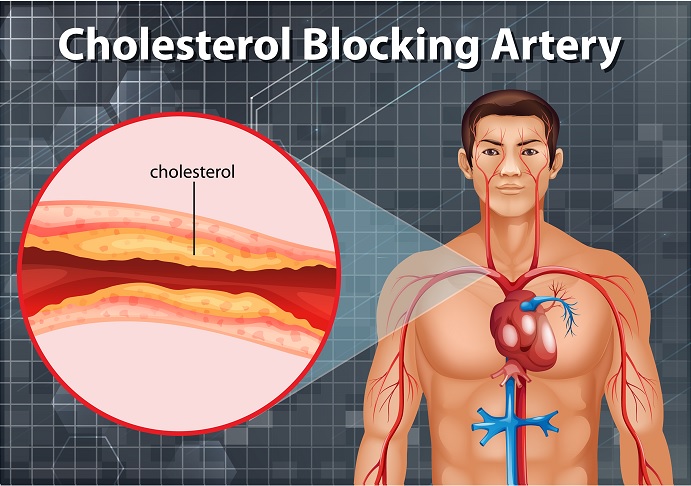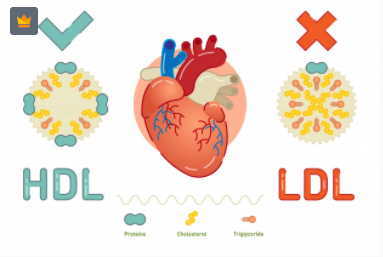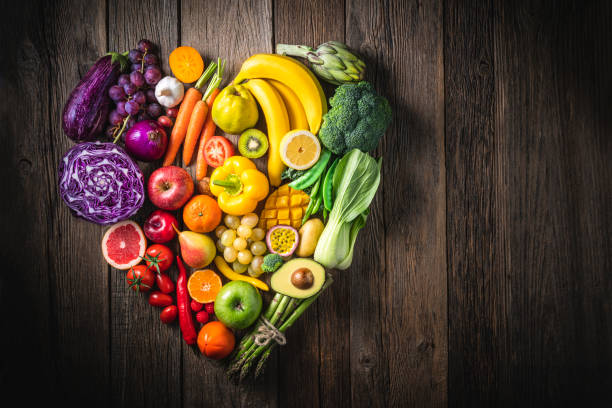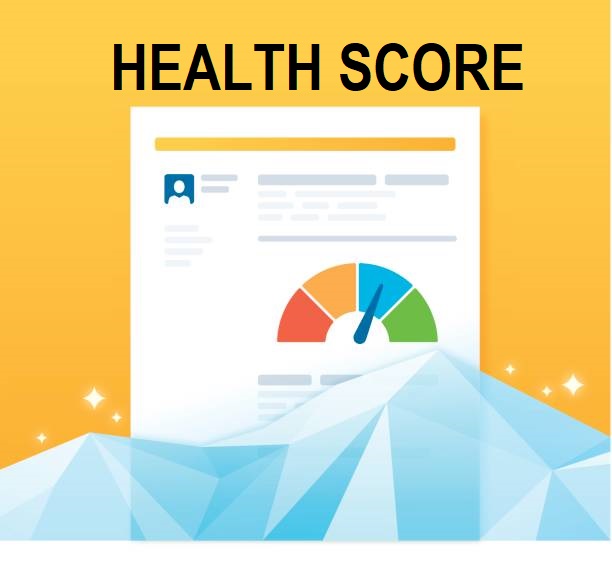What is LDL Cholesterol?
We’ve all heard the words ‘bad ldl cholesterol’, but what is it really? Cholesterol is a type of fat or a waxy substance that is found in your blood. Cholesterol is made in your liver. Your body needs it to build healthy cells and hormones, and to protect its nerves.
Why do we need cholesterol?
Cholesterol is essential to our bodies. It has 4 main functions which we need in order to live. These include helping to build cell walls, ensuring the intestine has digestive bile acids, enabling your body to make Vitamin D, and helping your body make certain hormones.

If our bodies need it, why is it bad?
Some of the cholesterol our bodies use comes from the food we eat. It is also produced by your liver. Cholesterol won’t dissolve in your blood which is why it needs proteins to carry it to where it needs to go. The carriers are called lipoproteins.
LDL Cholesterol Vs HDL
There are 2 types of lipoproteins that help carry cholesterol: LDL lipoprotein and HDL lipoprotein.
LDL, or low-density lipoprotein is a really small blob that has an outer rim of lipoprotein with a center of cholesterol. The majority of cholesterol in your body is LDL.
The rest of it is HDL cholesterol, or ‘good’ cholesterol. HDL transports the LDL to your liver. Here it is flushed out of your system.

What happens?
Bad cholesterol makes fatty deposits and collects in the walls of your blood vessels. These deposits get bigger, and end up making it difficult for enough blood to flow through your arteries.

It can also happen that these deposits break and form a clot, which can lead to a heart attack or a stroke.
Bad cholesterol can also cause coronary artery disease as well as peripheral heart disease. Both of which narrow the arteries in your body, ultimately causing a heart attack or stroke.
Where does the LDL cholesterol come from?
LDL or bad cholesterol is mainly hereditary. If your family is prone to high cholesterol, it is highly likely that you’ll have it too. These are generally out of your control. Your genetic makeup may result in your body not being able to break it down in your liver, or remove it from your blood.
Lifestyle
Your lifestyle also plays a huge role in bad cholesterol. Eating the wrong foods such as those high in saturated fat and trans fat, like those found in fatty cuts of meat and full fat dairy products. Foods that typically contain trans fat are fried and processed foods. They’re also found in packaged desserts and snacks.
LDL cholesterol and Exercise
Exercise is also a factor. If you do not exercise, you more than likely will have bad cholesterol.
Smoking
Smoking and too much alcohol are also causes of bad cholesterol.
Overweight
Being overweight or obese is a definite in bad cholesterol. A person with a high body mass index (a BMI of 30 or more) is at risk of high cholesterol.
Age
Age is another factor. While there are children who have high levels of bad cholesterol, it is typically found in adults aged 40 and above. As you age, your liver becomes less proficient at removing the bad cholesterol.
LDL cholesterol and Triglycerides
Triglycerides are also something to be aware of. They are the fat in your blood. They’re typically used to provide energy to your body. If you have excess, it is stored in different places (think of your ‘love handles’, for example) until they are needed later.
Triglycerides are the end result of digestion and the breaking down of fat in food. How they are used in your body is when you are between meals, and need an energy boost, your body’s hormones release them so it can use the unused calories.
High triglyceride levels in your blood are linked to high cholesterol.
What are the symptoms of high ldl cholesterol?
There are no symptoms of high cholesterol. Most people are completely unaware that their cholesterol levels are too high. The way to find out is to have a blood test.
The effects of a high cholesterol level can be fatal. It can lead to a heart attack or stroke. It makes sense, especially if you have high blood pressure, to have a routine blood screening done to check your levels of cholesterol.
Hypertension and high cholesterol are linked. As the cholesterol plaque causes your arteries to harden and narrow, the heart has a harder time to pump blood through them.
The result of high or bad cholesterol is high blood pressure.
So what should I do?
First of all, you’ll need to find out if you do have high levels of cholesterol. Visit your doctor for a blood screen to determine what the levels of cholesterol in your body are. The blood test is quick and your blood will be sent off to a lab for analysis.
You’ll need to fast – both food and liquids, except water -for at least 9 to12 hours before the test.
If the results show that you do have high levels of bad cholesterol, your doctor will prescribe medication. A healthy cholesterol level in a healthy adult should be less than 200 milligrams per deciliter (mg/Dl).
Drugs
The class of drugs used to lower cholesterol are typically as follows: statins, cholesterol absorption inhibitors, fibrates, resins, niacin, omega-3 fatty acids, and PCSK9.
- statins are the most prescribed medication for lowering bad cholesterol. What they do is reduce the amount of cholesterol your body produces.
- cholesterol absorption inhibitors play a role in stopping your intestines from absorbing the cholesterol you eat. They are usually used in conjunction with statins.
- resins are used to help your body to get rid of extra cholesterol. They bind bile in your intestines. So your body needs bile for digestion and cholesterol helps to make bile. When resins bind the bile, your body has to make more by using cholesterol. Resins are used with statins.
- fibrates lower your blood’s triglyceride levels. They reduce the liver’s production of VLDL and help remove the triglyceride from the blood.
- Niacin is a type of Vitamin B. It is generally prescribed for people who have a low tolerance of statins.
- omega-3 fatty acids play a role in lowering the levels of triglyceride. They are found primarily in fish oil. They can be prescribed by the doctor as supplements or they can be purchased as over-the-counter.
- PCSK9 is a protein that is made in your liver. A PCSK9 inhibitor is prescribed to lower the amount of this protein’s production in the liver to help lower the bad cholesterol.
You’ll need more than prescribed medication
The medication prescribed by your doctor is essential in treating your high levels of cholesterol. But, you can do more to ensure that your cholesterol levels remain at the right level.
Eat the right foods. We hear this said so often and we seldom take it seriously. What you eat plays a massive role in your health. With bad cholesterol, poor eating habits only increase the levels, and often with untoward results.
Choose the food you eat carefully. Bad cholesterol is found in foods that have a high fatty content. They are also found in processed foods. It is suggested that a food plan that is low in saturated and trans fats and high in soluble fibers and protein is excellent for lowering and maintaining cholesterol levels.

Foods that are great for lowering ldl cholesterol levels are:
- All fruit – whatever fruit is in season is good. Make a fruit salad, and add some low fat yoghurt for a delicious breakfast.
- Vegetables – steam or roast your vegetables. Not only is this a healthier way of cooking them, but they’ll taste great too.
- Whole grains – these are cereals and grains that are intact. In other words, they are not refined. Whole oats, whole wheat, whole grain rye, barley, brown rice are but a few of your choices.
- Lean meats (forget that pork crackling!) Choose skinless, fatless meat. Remove the fat trim of a pork cutlet, as well as beef, lamb and veal.
- Fish – most fish is suitable, as are prawns, crabs and lobster.
- Skinless poultry and turkey
- Low-fat or no fat dairy products
Exercise
There is no escaping it! But, the benefits of even moderate daily exercise play a significant role in your health. Remember to walk rather than drive, and climb the stairs where you can. A good recommendation is at least 30 minutes a day. Not only will it help control weight gain, but will help lower your cholesterol.
Smoking
If you smoke, now is a good time to quit. Smoking damages the walls of your arteries, and in turn cholesterol can collect in the damaged areas.
LDL Cholesterol and Alcohol
Reducing your alcohol intake can help lower your cholesterol levels. Drinking in moderation helps your liver function better. It also helps lower your blood pressure. All sensible reasons (and necessary) to help maintain good health – and lower your cholesterol levels.
Stress
Another way you can help lower your cholesterol is by reducing the amount of stress in your life. Stress typically encourages bad habits like smoking, eating junk food and drinking. These in turn affect your cholesterol levels.
Another reason that stress play a role in high cholesterol is that, when you are experiencing high levels of stress, your body releases a hormone called cortisol, along with adrenalin. High levels of these then trigger triglycerides. Triglycerides can boost bad cholesterol.
The next step
Planning is key in any project, both personal and work related. If you have high or bad cholesterol and ant to lower it, you need to create a plan of action. Once you have decided on the best plan, use it.
First visit your doctor and find out, through a blood test, whether your cholesterol levels are too high. Your doctor will prescribe medication to help combat the high levels.
Think about your lifestyle and what habits need to be changed or dropped altogether. This could be the type and amount of food you eat. It could also be the exercise that you don’t do enough of. It can also be the levels of stress you experience.
Think about your smoking habit – now is the perfect time to quit. If you cannot quit outright, at least start by cutting down. Once it becomes a habit to smoke less, you’ll be able to take the plunge and quit for good.
The same applies to drinking. Moderate drinking won’t harm you, but it is when you exceed that limit and drink more often that you should that it is then a bad habit.
Getting enough sleep is something that is essential too. Insufficient sleep causes the flight or fight mechanism in our bodies. This releases unwanted adrenalin and cortisol.
Write down everything you’ve thought about and what you are going to do. Pen and paper works quite well for planning.
Once you have your plan in place, start it. The sooner you make the necessary changes in your life, the sooner you will be on the road towards better health.
So, LDL cholesterol can be managed
We now know what bad cholesterol is. We also know what causes it and that it does not have any symptoms.
The types of medications that are usually prescribed are essential in helping manage the bad cholesterol, and are usually prescribed by your doctor once a diagnosis has been made.
A change in your lifestyle may be necessary to help you manage your cholesterol levels correctly. Forget about the junk food, no exercise and smoking and excess drinking – they don’t help you live healthily in any way.
The same can be applied to the stress you experience in your life. Manage your stress, and manage your cholesterol levels.
Bad cholesterol can be inherited, and there are often causes that are beyond your control. You also don’t know that you have high levels of bad cholesterol until you have yourself tested. Knowing what your levels of cholesterol in your body are can make a difference in your overall health, and prevent a potentially fatal heart attack.
Simply put, following a healthy lifestyle, taking your medication and taking care to reduce the stress in your life can all aid in managing your bad cholesterol.

